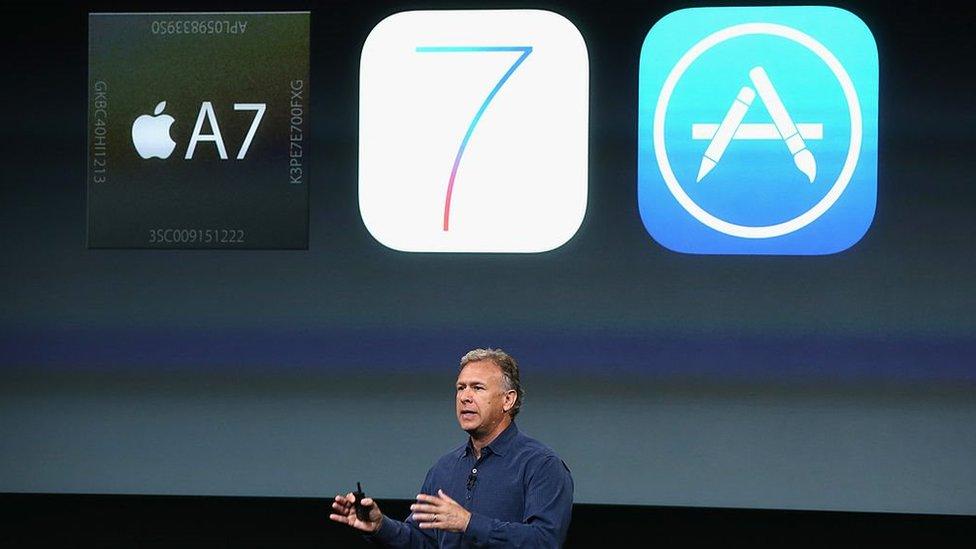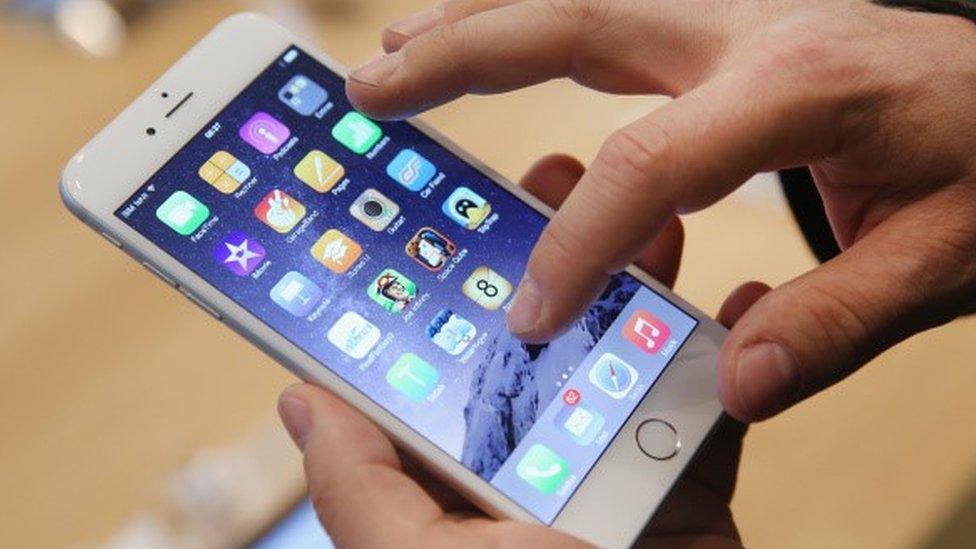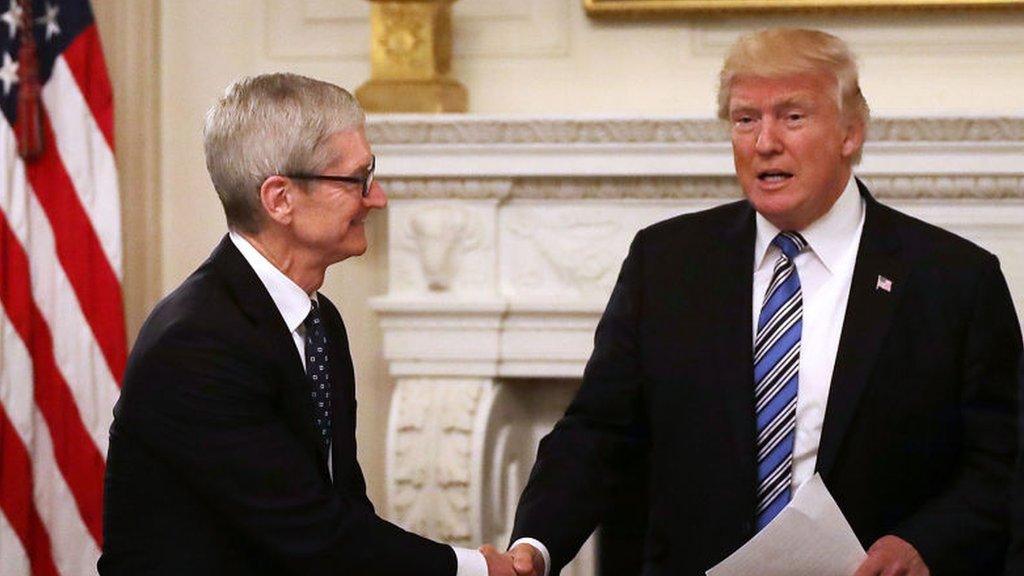Apple faces $506m patent dispute payout
- Published

Apple is accused of infringing a chip technology patent that dates back to 1998
A US judge has ordered Apple to pay more than half a billion dollars to a university after the tech firm failed to abide by an earlier court ruling.
Apple was sued in 2014 for allegedly using a technology developed by a professor and his students in its iPhone chips without the University of Wisconsin-Madison's permission.
Apple was ordered to pay about $234m (£179m) when it lost the patent case.
That sum has now been more than doubled because it continued to use the tech.
The judge said that additional damages and interest brought the sum owed to $506m.
However, Apple still hopes to overthrow the fine by appealing against the original jury verdict.
The penalty is still less than the $862m the university had originally sought in damages.
That is because Apple was found not to have deliberately infringed the university's microchip technology.
The patent in question outlined a way to boost computing performance by predicting how, external processors are about to be used.
Apple had also been granted its own patent for a similar method.
The original case covered Apple's use of the invention in its A7, A8 and A8X processors, which are found in devices including the iPhone 5S and the iPad Air 2.
Apple did not re-engineer the chips after losing the dispute in 2015 nor pull the relevant products from sale, and thus became liable for the additional payout.
The university is also seeking further compensation for Apple's continued infringement of the patent in its A9 and A9X chips, which power its iPhone 6S and iPad Pro models.
However, the follow-up legal action has been put on hold until Apple's appeal has been considered.
- Published17 October 2015

- Published25 July 2017
